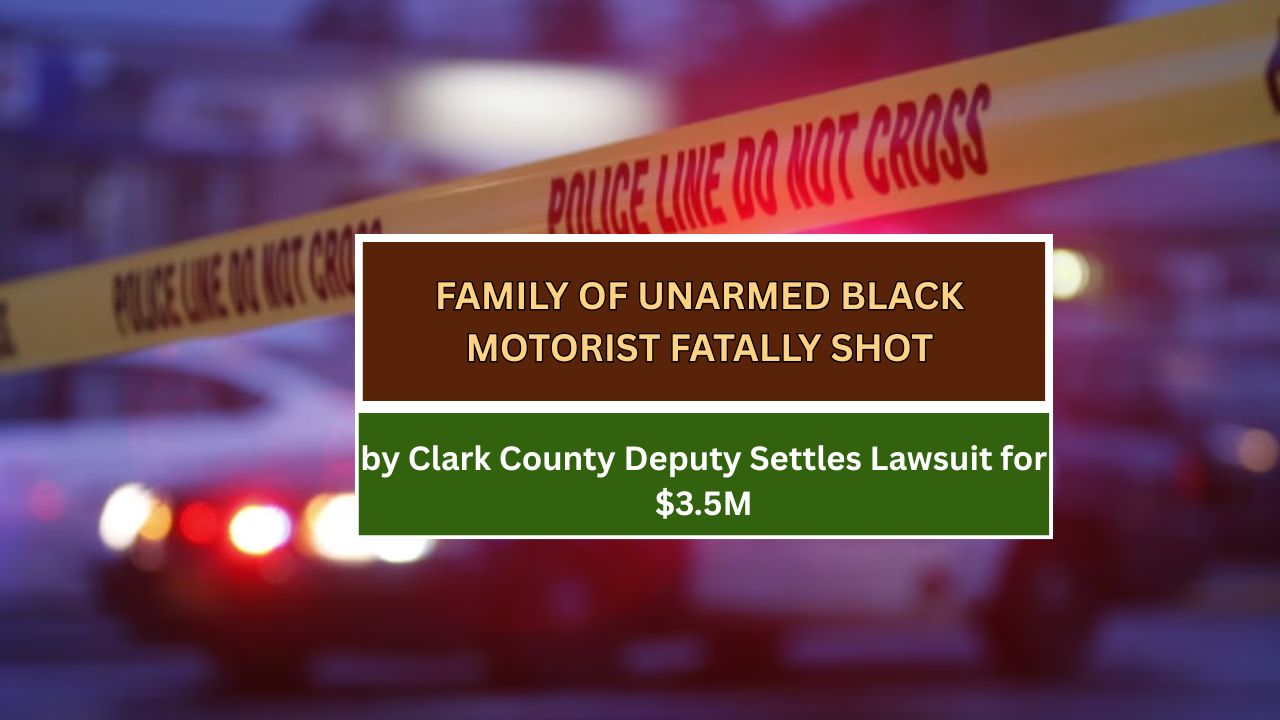VANCOUVER, Wash. — Clark County, Washington, has agreed to pay $3.5 million to settle a wrongful death lawsuit filed by the family of Jenoah Donald, an unarmed Black man fatally shot by a sheriff’s deputy during a traffic stop in 2021.
The settlement brings partial closure to a tragic case that became a focal point for discussions around police accountability and the use of force against unarmed individuals of color.
What Happened to Jenoah Donald?
On the evening of February 4, 2021, 30-year-old Jenoah Donald was pulled over in the Hazel Dell area of Clark County for driving with a defective taillight. What began as a routine traffic stop escalated rapidly when deputies discovered what they believed to be a weapon-like object—later determined to be a screwdriver—in the car.
A struggle ensued between Donald and Clark County Deputy Jonathan Feller, during which Feller discharged his firearm. Donald was shot in the head and succumbed to his injuries a week later while hospitalized. He had not been armed with a gun at any point during the encounter.
Donald’s death sparked local outrage, especially as it followed national scrutiny of policing practices in the wake of George Floyd’s killing in 2020.
Legal Action and Settlement
In 2022, Donald’s family filed a federal civil rights lawsuit against Clark County, accusing the sheriff’s department of excessive use of force, racial profiling, and failure to properly de-escalate the situation. The lawsuit claimed the stop and subsequent actions violated Donald’s constitutional rights.
Clark County maintained that the deputy believed he was in danger during the struggle. However, the family and their attorneys argued that Donald posed no imminent threat and that the shooting was unjustified.
After more than two years of litigation and mediation, the parties reached a $3.5 million settlement in May 2025. While the agreement does not include an admission of wrongdoing by the county or the sheriff’s office, it represents one of the largest payouts for police shootings involving unarmed individuals in Southwest Washington.
Response from the Family and Community
Donald’s family expressed mixed emotions following the announcement. “No amount of money can replace Jenoah,” said a family spokesperson. “But we hope this settlement sends a message that there must be accountability, and change is necessary.”
Local community groups, including the NAACP Vancouver and civil rights advocates, praised the resolution but called for continued reform in law enforcement practices.
“This is a step toward justice, but real justice would mean Jenoah was still alive,” said a representative from the Washington Coalition for Police Accountability.
What Happens Next?
Although the legal case is settled, many in the community are calling for further investigation into Deputy Feller’s conduct and broader reforms in police training and traffic stop procedures. As of now, Feller remains employed by the Clark County Sheriff’s Office, though public scrutiny remains high.
In light of this and other incidents, lawmakers in Washington State have introduced several police accountability measures, including stricter use-of-force standards and increased funding for de-escalation training. More information on current policing laws and initiatives in Washington can be found on the Washington State Legislature’s official site and the Washington State Criminal Justice Training Commission (CJTC).
Wider Impact and National Context
Jenoah Donald’s death joins a troubling list of high-profile cases involving police shootings of unarmed Black men, such as Tony Robinson in Wisconsin and Eric Harris in Oklahoma. Each of these incidents resulted in multi-million dollar settlements and intensified national debates on police use of force.
According to data compiled by Mapping Police Violence, Black Americans are nearly three times more likely to be killed by police than white Americans, despite being less likely to be armed.
Civil rights organizations continue to urge federal intervention and the passage of legislation like the George Floyd Justice in Policing Act, which remains stalled in Congress. The full text of the bill is available on Congress.gov.
This article has been carefully fact-checked by our editorial team to ensure accuracy and eliminate any misleading information. We are committed to maintaining the highest standards of integrity in our content.

Outside of work, he enjoys playing chess, following cricket, and writing short stories. His commitment to integrity and in-depth analysis strengthens OTE News’ mission of providing trustworthy journalism.



